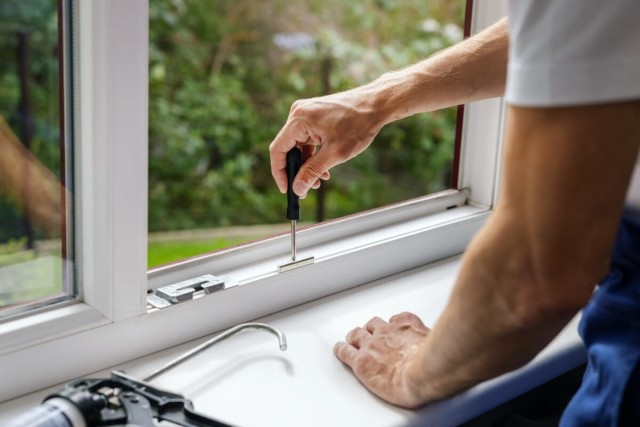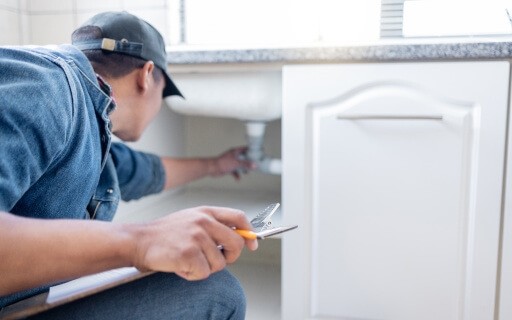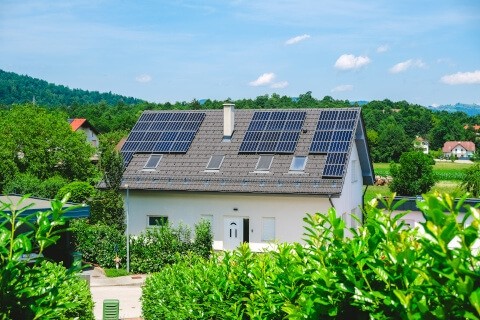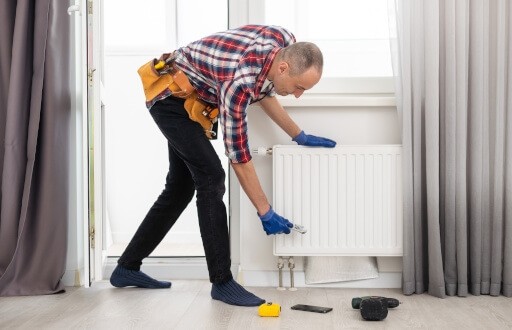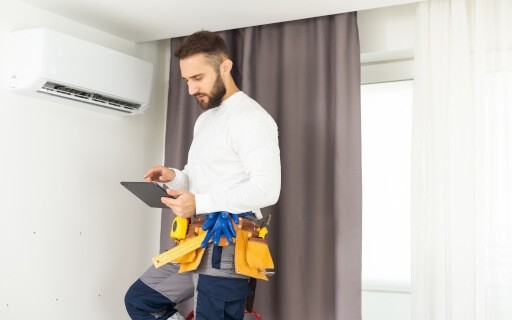Whether your rental property’s front porch needs some work, the exterior paint is peeling, the carpets are stained and worn, or the bathrooms are a bit outdated, it may be time for some upgrades. But despite any of these issues, your unit is still occupied, and your tenant wants to make improvements. So, the question is: should you let tenants make improvements? The answer is: it depends.
If Your Tenant Asks to Make Improvements
If a rental home is out of date or in need of a few updates, it’s not unusual for tenants to ask to make improvements themselves. Common requests include painting the walls, replacing the flooring, updating the light fixtures, planting flowers in the yard, or upgrading bathroom sinks.
If your tenant asks to improve the home, you should calculate how much it will cost to return the unit back to its original condition if need be. This will only be necessary if a tenant’s “improvements” somehow make the rental less desirable. However, it’s very likely that the alteration will be an improvement you can keep. This will benefit you and will make your current (and likely future) tenant happy.
Whether you say yes is up to you, but if the security deposit will cover the cost of returning the property to its original state, you might consider taking a risk and agreeing to the changes. However, if the security deposit won’t cover it, or if you don’t like the proposed improvement plan, you can simply say no. After all, this is your investment we’re talking about.
Who Pays for Rental Property Improvements?
If the tenant makes a change that somehow devalues your home, and does so without your permission, they will typically need to pay you for the “improvements,” and you would then use that money to fix the issue. However, if your tenant adds value to your rental, it becomes more difficult to decide who pays for the improvements.
You have several options when it comes down to it. You can attempt to come to an agreement with your tenant where you pay half of the total cost and they pay the other half. Another option is to allow an improvement only if the tenant pays for it entirely on their own. If you decide that the improvement the tenant is proposing will add value to your property, you can choose to pay for all of it.
Whatever you decide to do, it’s important to address the issue of tenant improvements in the lease agreement. If you didn’t add a clause on the matter beforehand, it’s not too late. You can add an addendum to the lease that makes it clear who is responsible for paying for improvements (and whether they can be done at all).
Lease clause for improvements by landlord
Be sure to include a clause in your lease that covers improvements you’ve done yourself. This will ensure that you’ll be paid for any improvements you make that were requested by your tenant. However, keep in mind that this clause does not cover any habitability issues.
Lease clause for improvements by either party
It’s also important to include a clause in the lease that covers any improvements made by either you, the landlord, or your tenant. This clause makes it clear that as the landlord, you get to keep the improvements to the property if the tenant moves out.
Lease clause if alterations devalue the home
This clause will cover any alterations done by the tenant to the property that devalued your investment in some way. Refer to this clause if you need to withhold all or part of the security deposit to return the property back to its former state.
Rental Property Repairs vs. Improvements
A tenant requesting to make improvements to the property is very different from them asking to make repairs. Repairs are typically one-off fixes that help keep the property habitable. For instance, a tenant may ask to make repairs if there is a hole in the wall that needs to be patched or a broken cabinet door that needs to be fixed. If they can do this themselves (with your permission), then the property will be brought back to its original, habitable condition. If the requested repair does affect habitability, the landlord will be required to complete the repair if the tenant doesn’t. Always make sure that submitting maintenance requests is a streamlined process for tenants. With our online maintenance platform, tenants can submit maintenance requests online. When you provide an easy way for tenants to request repairs, you also ensure that your property is cared for in a suitable and timely manner.
Anything that increases the value of your rental property or extends its life is considered an improvement. A tenant may ask to replace outdated carpet, add new light fixtures, or paint the walls to brighten up the place. These alterations (if approved) are typically considered to be improvements to the property because they add value to your investment. If the tenant’s “improvement” is not your style or is not desirable to your next tenant, you can always change it back.
If Your Tenant Makes Unauthorized Alterations
If a tenant has altered your property without permission, you need to inform them either by letter or email that you are aware of the change and it is a violation of the lease. This should be followed with a consequence to their action, if any.
If you like the change, you can let them know that they won’t need to restore the property to its original condition but that you won’t pay for the cost of the alteration since they did not seek approval beforehand.
If you don’t like the change, you can require your tenant to restore the property to its original condition. If that doesn’t happen, you may do so yourself and deduct the costs from their security deposit. If it becomes a bigger issue, you may have to take a serious step and go to small claims court or consider evicting the tenant for violating a lease term.
When to Make Improvements Yourself
Because your rental property is an investment, you should maintain and repair it as necessary. If your rental isn’t holding up to the competition in your area, you may want to make upgrades to make it more desirable to potential tenants. Many renters, for example, are interested in stainless steel appliances, granite countertops, and hardwood floors. Although it’s best not to allow tenants to make major renovations, you could consider tackling these projects yourself (or hiring a professional to do so).
The bottom line is that every rental property will need improvements from time to time. It’s important to stay on top of maintenance, repairs, and possible renovations for your property. But if your property could use a bit of work, and your tenant has suggestions to improve the space, you may want to entertain your tenant’s request to make improvements. As long as you and your tenant understand the terms of the deal and its clearly stated in the lease agreement, you should be good to go.


